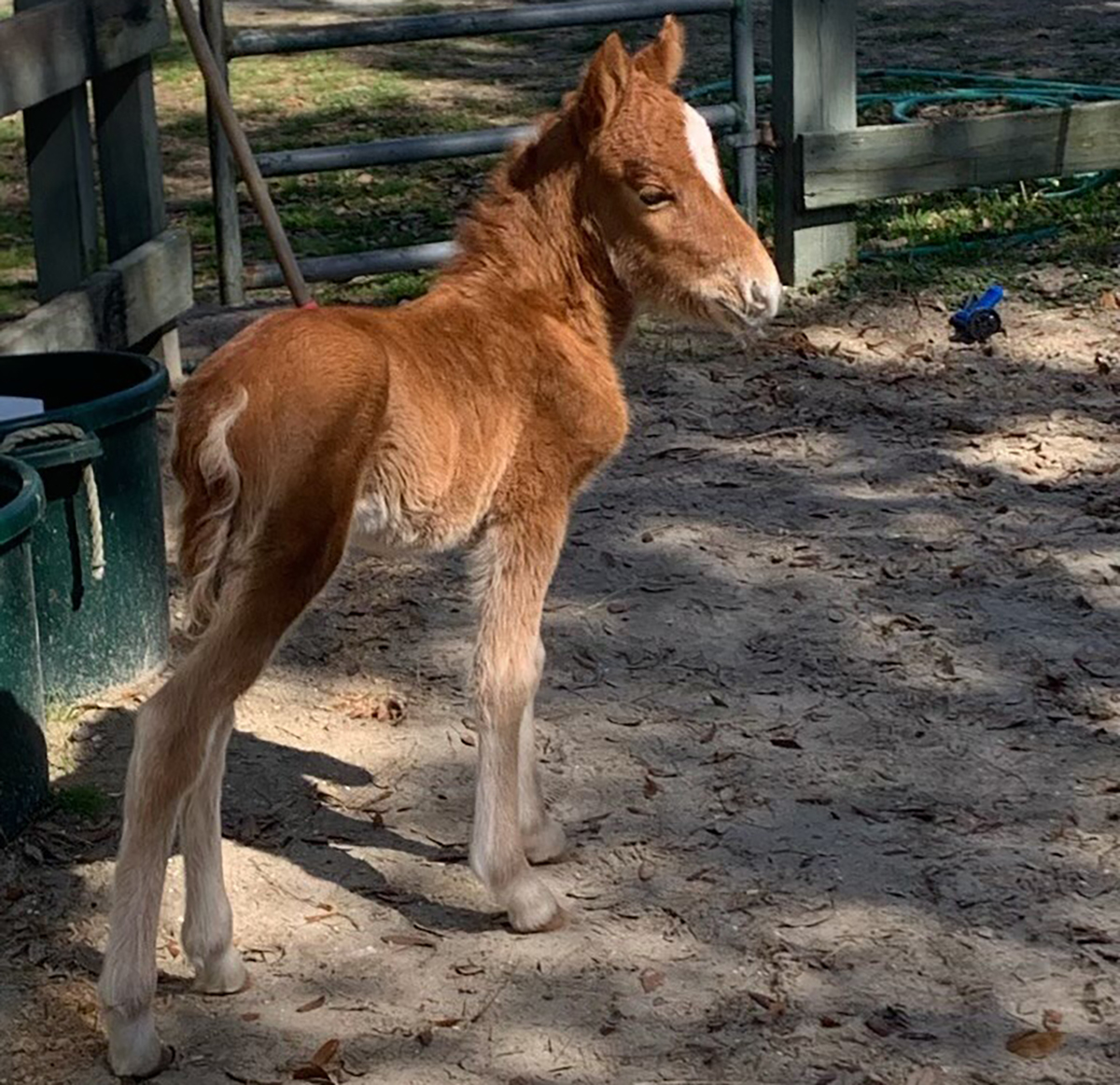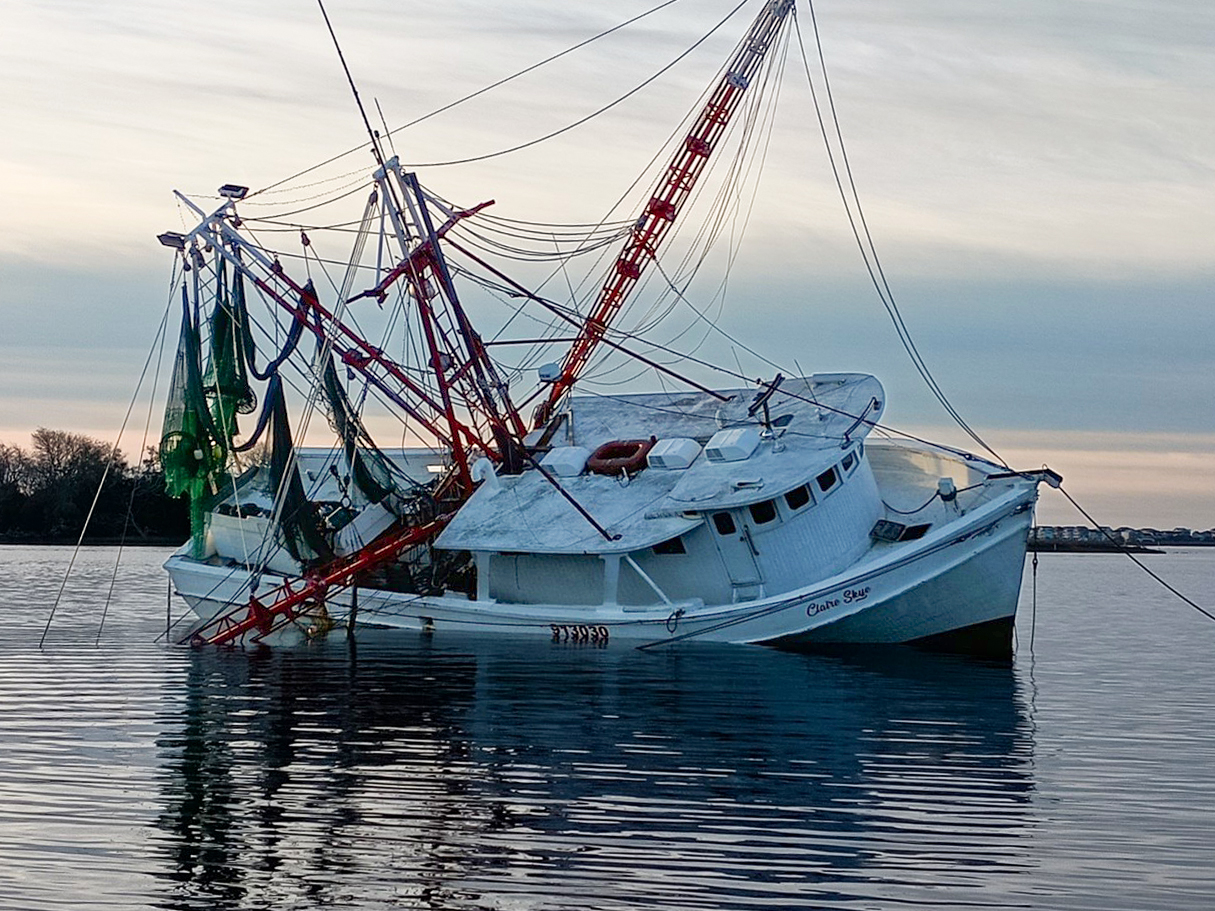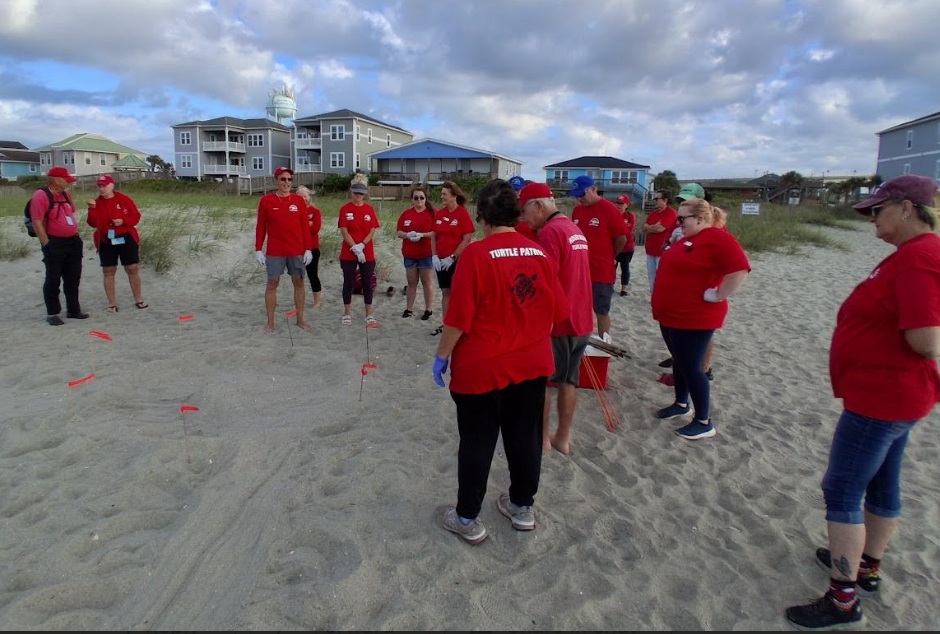
Visitors to Shackleford Banks, the southern-most barrier island in Cape Lookout National Seashore, on March 26 removed a newborn foal from its natural habitat, a federally protected, undeveloped island that is home to about 100 wild horses.
Before the foal was removed, the newborn had followed the group for about two hours. There were no other horses around during this time. When the group boarded their boat to leave the island, the foal tried to follow them. With the best of intentions, thinking that the foal would drown, they lifted the foal into the boat and departed, thereby removing the horse from its natural habitat, its mother and the herd, officials said.
Supporter Spotlight
Once a foal has been removed from the seashore, it is unlikely that the park can reunite it with its dam, or mother.
Although these visitors thought that they were doing the right thing, this foal can’t be returned to Shackleford Banks and will now live a life as a domesticated animal, rather than as a wild stallion. The foal is under the care of the nonprofit Foundation for Shackleford Horses.
The visitors were cited for removing the horse from Shackleford Banks and park officials said they were working with them to assist with educational opportunities and community service projects that would benefit Shackleford Banks and the horses protected there.
Dr. Sue Stuska, the park’s wildlife biologist, explained that for a short period early in a foal’s life, “it instinctively follows its dam without necessarily knowing which creature she is. When separated, the foal will follow other horses or even people.”
March is the beginning of foaling season on Shackleford Banks. Visitors observing strange animal behaviors may call the park visitor center or 911 to report to park staff.
Supporter Spotlight
Officials said another common misconception is when people mistake horses sleeping on their sides as injured or dead, but foals often sleep on their sides, nearly motionless, for hours. This is especially true if other horses are nearby. Anyone observing at a distance should look for the flick of an ear or tail or watch for the rise and fall of the ribcage. Visitors should not approach closer than 50 feet to any wildlife in the park.
Anything urgent, serious, or potentially life threatening to the visitor or wildlife should immediately be reported by calling 252-728-2250, the main phone number for Cape Lookout National Seashore, or 911.







